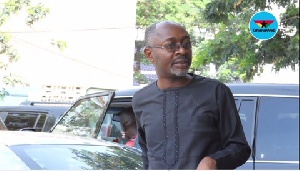Deputy Attorney General Joseph Dindiok Kpemka has revealed that the Attorney General’s Department is battle-ready for businessman Alfred Agbesi Woyome at the African Court of Justice and the International Chamber of Commerce over the refund of GHC51million paid to him as judgment debt.
Mr Woyome dragged the Attorney General to the African Court of Justice in Arusha, Tanzania, and the International Chamber of Commerce over alleged breach of human rights.
But according to Mr Kpemka, the Attorney General's Department is preparing to file its responses at the two international tribunals.
In an exclusive interview with Class News' Jerry Akornor, the Tempane lawmaker was confident government would act in the interest of Ghana.
“All I can tell you is that we are ready for him and we have stated time without number that his days of reckoning are here. There is nothing he can do and all those legalities, we will follow him there and we will do what is right in the interest of Ghana and we have the greatest conviction that at the end of it all Ghanaians will applaud this government as far as this matter is concerned,” he stated, adding: “It’s been an albatross on our neck as a nation and our government, led by Nana Addo Dankwa Akufo-Addo, is determined to put that issue behind us.”
Meanwhile, Mr Woyome will today, Monday 24 July be orally examined at the Supreme Court by the Deputy Attorney General Godfred Yeboah Dame.
The oral examination is to determine if Mr Wayome has what it takes to pay back GHS51.2million he was paid by the state as judgment debt.
Mr Woyome was paid the said amount for helping the state raise funds to construct stadia for the hosting of the 2008 African Cup of Nations.
However, an Auditor General’s report released in 2010 held that the amount was paid illegally to him. The Supreme Court in 2014 then ordered Mr Woyome to pay back the money to the state.
Apart from finding out if Mr Woyome has what it takes to pay back the money, he will also be examined on issues pertaining to whether he owed any debts, whether he has property to satisfy the debt, and the manner in which he used the judgment debt money paid him, among others.
General News of Monday, 24 July 2017
Source: classfmonline.com













